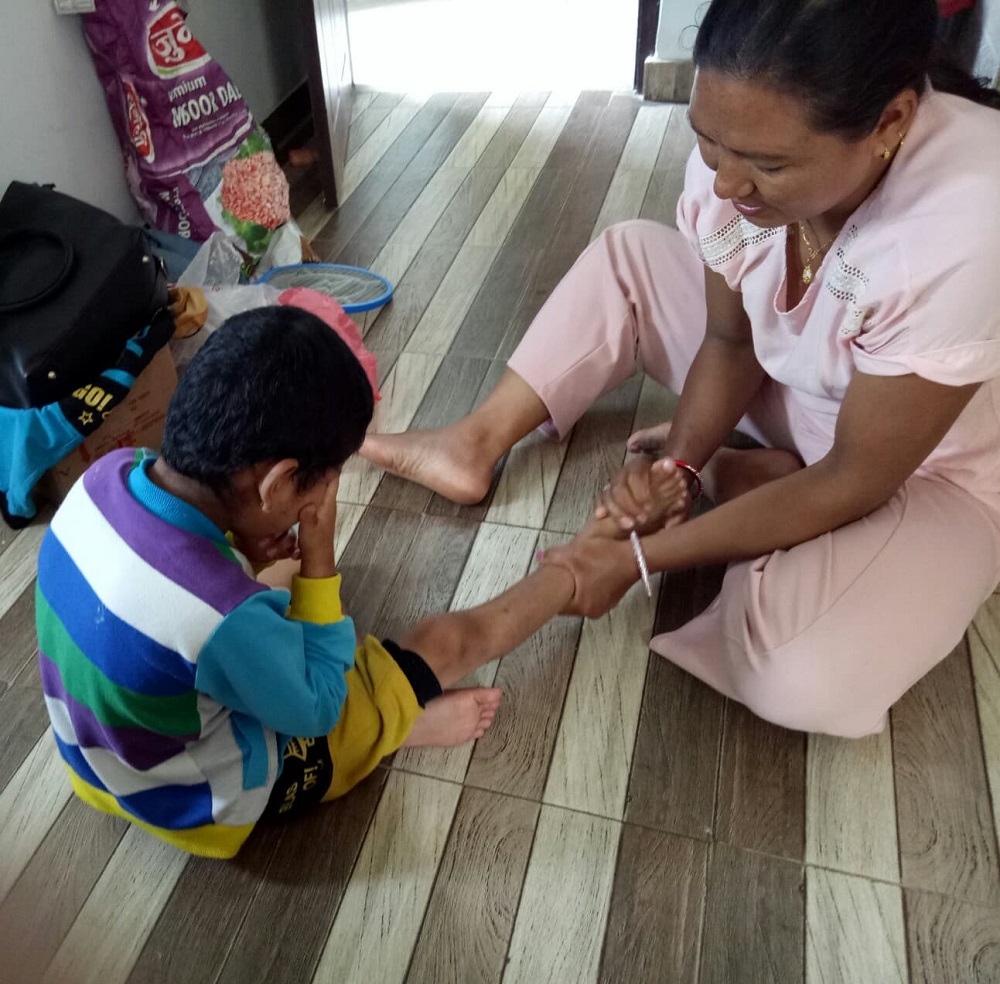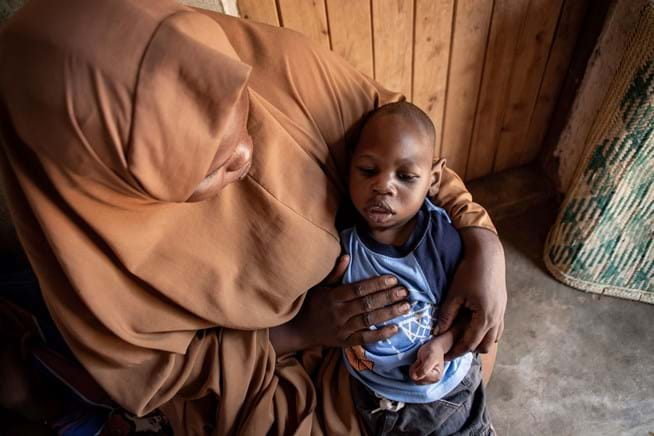Training deafblind educators in Nepal
Prabesh is now able to move around and carry out daily self-care tasks after receiving specialist support from Sense International and its partner in Nepal.
Like many parents of children with deafblindness, Prabesh’s mother and father were reluctant to allow their son to engage with the local community due to the stigma associated with disability in Nepal. So when Sumitra, a deafblind educator trained by Sense International’s national partner, National Federation of the Deaf Nepal, heard about a child with sensory impairments in the area, she had to work hard to convince Prabesh’s parents to allow her to visit him.

But their initial reluctance soon faded when Sumitra was able to demonstrate the benefits of providing direct support to children with deafblindness in the home. By showing Prabesh’s parents the progress made by other children that she was supporting, Sumitra was able to gain their consent to start working with their son.
“I thought it was impossible to teach my child, but after seeing other children, I realised my child could have received such support from childhood and his life could have been much better than now.”
Prabesh’s mother
When Sumitra first met Prabesh, he had never left the confines of his room. As he had been carried everywhere, he had not built up mobility skills to move around independently. Through regular sessions, Sumitra helped Prabesh to gain the confidence to touch the floor and start to crawl. She encouraged him to explore beyond his room, and familiarise himself with his home. She also supported Prabesh to learn basic self-care skills such as how to dress himself, use the toilet and eat and drink independently.
Prabesh enjoys Sumitra’s visits and his family actively support the work that she is doing. His parents now feel able to be more open about his disability, and are looking for further ways to improve his quality of life.



